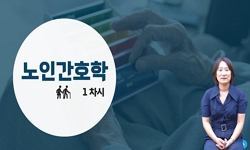본 연구는 Campbell 외(1999) 사회적 자본과 건강 경로 모델을 기반으로 장기요양재가서비스 이용 노인의 사회경제적 지위, 사회적 자본, 우울, 건강행동이 주관적 건강상태에 미치는 영향을 살...
http://chineseinput.net/에서 pinyin(병음)방식으로 중국어를 변환할 수 있습니다.
변환된 중국어를 복사하여 사용하시면 됩니다.
- 中文 을 입력하시려면 zhongwen을 입력하시고 space를누르시면됩니다.
- 北京 을 입력하시려면 beijing을 입력하시고 space를 누르시면 됩니다.
https://www.riss.kr/link?id=A109267248
- 저자
- 발행기관
- 학술지명
- 권호사항
-
발행연도
2024
-
작성언어
Korean
- 주제어
-
KDC
338
-
등재정보
KCI등재
-
자료형태
학술저널
- 발행기관 URL
-
수록면
67-99(33쪽)
- DOI식별코드
- 제공처
-
0
상세조회 -
0
다운로드
부가정보
국문 초록 (Abstract)
본 연구는 Campbell 외(1999) 사회적 자본과 건강 경로 모델을 기반으로 장기요양재가서비스 이용 노인의 사회경제적 지위, 사회적 자본, 우울, 건강행동이 주관적 건강상태에 미치는 영향을 살펴보고, 그들 관계에서 우울과 건강행동의 매개효과를 검증하였다. 이를 위해 한국복지패널 16차 조사자료를 일부 활용하였다. 65세 이상 장기요양재가서비스 이용 노인 491명을 추출하여 최종 분석에 사용하였다. 연구결과, 첫째, 사회적 자본이 주관적 건강상태로 가는 경로, 사회적 자본이 우울로 가는 경로, 우울이 주관적 건강상태로 가는 경로, 건강행동이 주관적 건강상태로 가는 경로가 통계적으로 유의하였다. 둘째, 사회적 자본은 주관적 건강상태에 직접적인 영향을 미치는 것으로 나타났으며 우울을 매개로 주관적 건강상태에 영향을 주는 요인으로 확인되었다. 이러한 연구결과를 바탕으로 장기요양재가서비스 이용 노인의 주관적 건강상태를 높이기 위한 정책적, 실천적 함의를 제언하였다.
다국어 초록 (Multilingual Abstract)
Based on Campbell et al. (1999) social capital and health path model, this study examined the effects of socioeconomic status, social capital, depression, and health behavior of the elderly using long-term care home services on subjective health statu...
Based on Campbell et al. (1999) social capital and health path model, this study examined the effects of socioeconomic status, social capital, depression, and health behavior of the elderly using long-term care home services on subjective health status, and verified the effects of depression and health behavior in their relationships. For this, some of the data from the 16th survey of the Korean Welfare Panel were used. 491 elderly people aged 65 or older who used long-term care home service were extracted and used for final analysis. As a result of the study, first, the path of social capital to subjective health status, the path of social capital to depression, the path of depression to subjective health status, and the path of health behavior to subjective health status were statistically significant. Second, social capital was found to have a direct effect on subjective health status, and it was identified as a factor affecting subjective health status through depression. Based on these research results, theoretical, educational, policy, and practical implications and suggestions for improving the subjective health status of the elderly using long-term care home services were presented.
동일학술지(권/호) 다른 논문
-
- 한국노인복지학회
- 황관중
- 2024
- KCI등재
-
- 한국노인복지학회
- 송지영(Jiyoung Song)
- 2024
- KCI등재
-
비동거 자녀에 대한 장년층 부모의 경제적 지원과 노후준비의 관계 연구: 자녀 취업형태의 조절효과 검증
- 한국노인복지학회
- 전예지(Yeji Jeon)
- 2024
- KCI등재
-
노인장기요양기관 방문간호사의 전문직업성이 서비스 질에 미치는 영향: 직무스트레스의 조절 효과
- 한국노인복지학회
- 김학재(Kim, Hakjae)
- 2024
- KCI등재





 DBpia
DBpia






